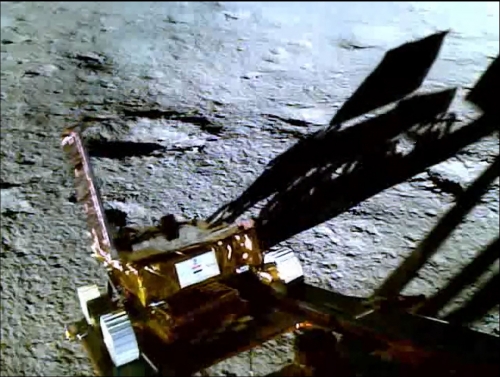India space chief unfazed by Moon mission's apparent end
AFP | New Delhi
The Daily Tribune – www.newsofbahrain.com
As hopes dim of further contact with India's Moon rover, the country's space chief has said he was satisfied with the prospect of calling its successful lunar mission to an end.
India began exploring the Moon's surface in August after becoming just the fourth nation to land a craft on the celestial body, sparking celebrations in a country rapidly closing in on milestones set by global space powers.
Rover Pragyan -- "Wisdom" in Sanskrit -- surveyed the vicinity of the Moon's south pole but was powered down before the start of lunar night, which lasts roughly two weeks on Earth.
The Indian Space Research Agency had hoped to prolong the mission by reactivating the solar-powered vehicle once daylight returned to the lunar surface, but so far has been greeted by radio silence.
"It is OK if it does not wake up because the rover has done what it was expected to do," ISRO chief S. Somanath told reporters late Wednesday, according to the Press Trust of India news agency.
ISRO said last week it had hoped to reestablish contact with the rover and the lander that safely delivered it.
"As of now, no signals have been received from them," it added.
The world's most populous nation has been steadily matching the achievements of established spacefaring powers at a fraction of their cost.
It has a comparatively low-budget space programme, but one that has grown considerably in size and momentum since first sending a probe to orbit the Moon in 2008.
Experts say India can keep costs low by copying and adapting existing technology, and thanks to an abundance of highly skilled engineers who earn a fraction of their foreign counterparts' wages.
India became the first Asian nation to put a craft into orbit around Mars in 2014 and is slated to launch a three-day crewed mission into the Earth's orbit by next year.
Earlier this month it launched a four-month mission towards the centre of the solar system to study phenomena on the surface of the Sun.
August's successful lunar mission came four years after its predecessor crashed on final descent, in what was seen at the time as a huge setback for its space programme.
Related Posts

